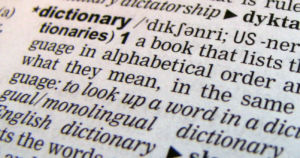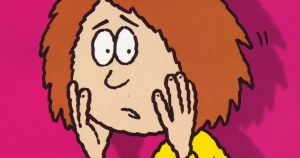
Introduction to Disability Terminology
To help authors make informed decisions about what language to use, we talk about disability terminology–from outdated words and cringe-worthy phrases to straight-up ableist slurs, and everything in between.

To help authors make informed decisions about what language to use, we talk about disability terminology–from outdated words and cringe-worthy phrases to straight-up ableist slurs, and everything in between.

The only way I can describe Take a Good Look by Jacqueline Wilson is a book designed to educate young children about visual impairment gone horribly wrong.

Linette is more a convenient plot device than a protagonist, and disabled readers deserve more. Young Knights of the Round Table is a prime example of incidental disability done wrong.

An emotionally wrenching book, but a worthy one, and one that treats its autistic protagonist with every bit of the realism and respect that she deserves.

Being autistic and also belonging to another minority might be one marginalization too many to sell children’s fiction informed by one’s own experience to a mainstream press, and that is a very sad thought.

Among Others is a terrific book, even if it isn’t perfect, and I’m so glad Walton represented a disabled teen girl as interesting, strong, and unique.

The world does its best to remove our autism from the mainstream narrative of life, hiding either it or us whenever possible. In the world of fiction, we often see these same attempts.

All in all, 100 Sideways Miles is not a perfect portrayal of what it means to have epilepsy. But it is respectful and spoke to me on unexpected levels.

People like Early do exist, and it’s great to see historical fiction that includes a disabled character, but Early gets a little too close to the trope of the magical or extra-special autistic for my comfort.

The first time I’ve really seen someone in a book who is just like me, and she turns out to be a superhero.